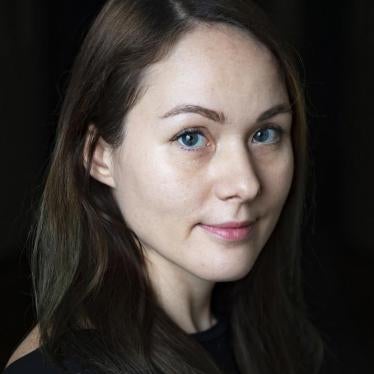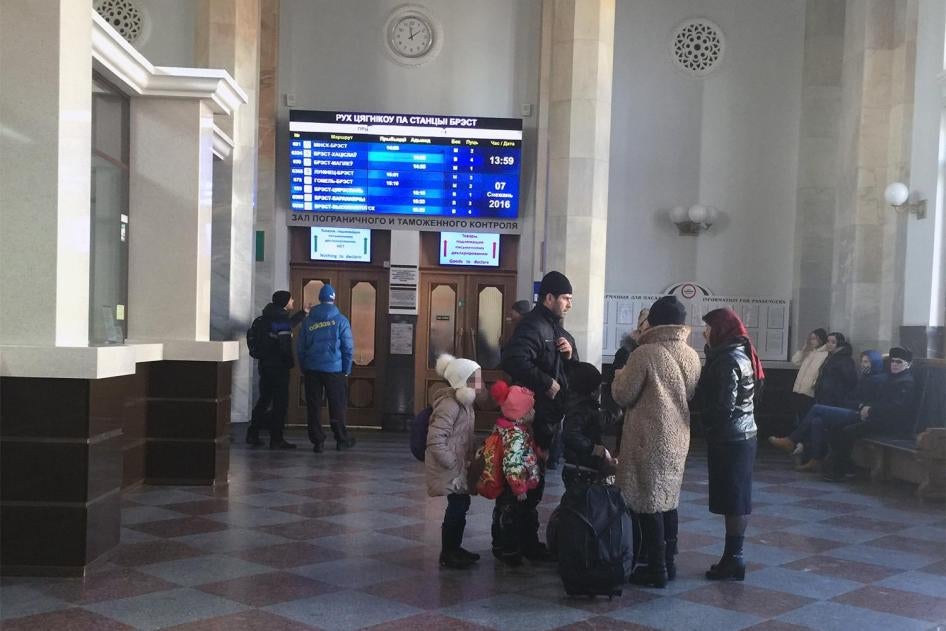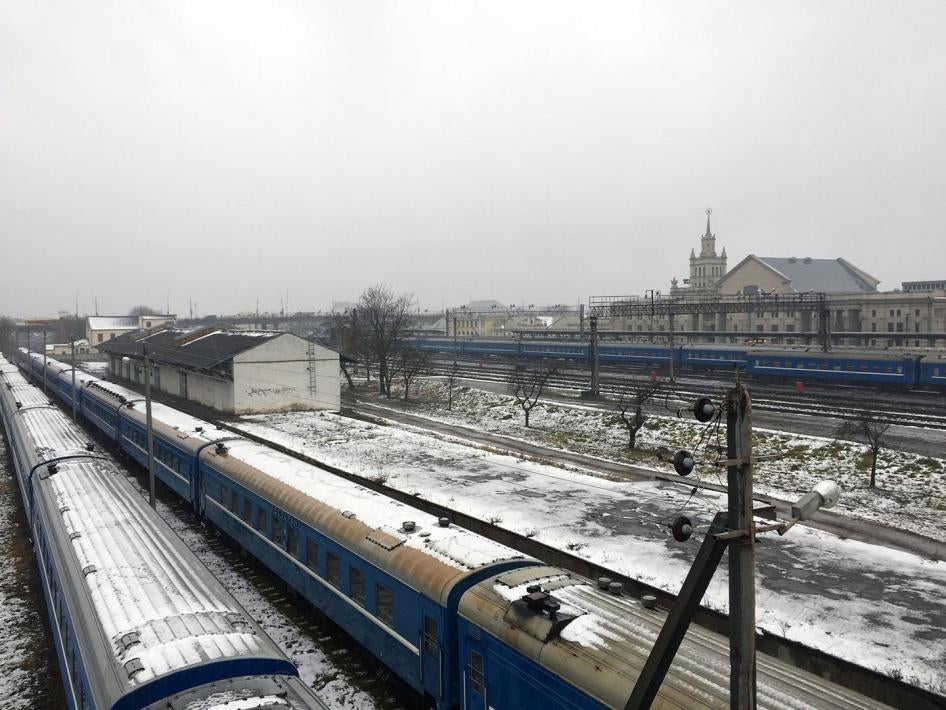While Europe has been focusing its attention on refugee flows across the Mediterranean, another refugee situation has been building on the Belarus-Poland border. Since late 2015, thousands of asylum seekers, mostly from Russia’s North Caucasus republics of Ingushetia, Dagestan and especially Chechnya, have arrived here, hoping to cross the border into Poland and seek safety.
At the Brest train station in December we spoke to “Tamara”, a Chechen woman in her late forties. She had arrived in Brest, a historic Belarusian city on the Polish border, four months earlier. She had been trying unsuccessfully to cross into Poland ever since, and when her money ran out, she and her three sons slept at the train station for several nights.
Tamara said she fled Chechnya with her family because local “security people” took her oldest son in for questioning when he turned 19, beat him, threatened to send him to fight in Ukraine, and threatened the rest of the family. She understood that the threats were real. Tamara said her brother, who had fought in the first Chechen war in the early 1990s, disappeared in 2006. His body was found in a nearby forest.
Last August, Tamara decided to go to Poland with her children and seek asylum. She had heard people say it was possible, but by the time they arrived at the border, that no longer seemed to be the case. When we spoke to her in December, she had made 24 attempts to cross the border and was sent back to Belarus every time. But they don’t feel safe in Belarus, where Chechen security forces are known to be lurking.
“They don’t listen to us at the border,” she told us. “I say, ‘We are afraid to go back, afraid for our lives. We want asylum.’ The [Polish] border guards just stare and say nothing, then tell us to go and wait. Once a border guard said to us: ‘Go to Kyrgyzstan, go to Turkey. Poland doesn’t want you.’ Another time a man just said, ‘No visa – no entry.’”
During the summer months of 2016, between 400 and 800 asylum seekers a day, most from Chechnya, were trying to cross Belarus-Poland border on the train from Brest to Terespol, the first station in Poland. Numbers decreased in the fall of 2016, due to the weather getting chillier, but also due to Poland cooling off its hospitality. According to the Belarusian rights group Human Constanta, with the exception of a handful of people apparently selected at random, Poland has been summarily rejecting the majority of asylum seekers and returning them to Belarus.
Brest in early December was bleak: grey skies and very cold. After interviewing dozens of families and individuals who have been trying over and over to cross into Poland, my colleague and I decided to get on the train, sit in the carriage assigned to asylum seekers, and see for ourselves what these people went through every day.
Purchasing a ticket was a challenge. “Carriage four?” The stern Belarusian lady behind the glass asked. “What do you need to sit there for? Carriage four is where THEY travel.”
After we convinced her that we were in our right minds, we got the tickets and boarded the train. I spent the journey talking to an anxious-looking white-haired man from Chechnya, who said his 22-year-old son was in trouble with “Kadyrov’s men”. When I asked for details, he glanced at the other migrants nearby and chose not to answer. Instead he said it was his fiftieth attempt to cross.
Like most people we spoke to, the man was upset about how Polish officials treated him. “I don’t expect to be met with flowers,” he said, “But we are not criminals. They treat us like we are animals. I told this woman [a Polish official], my story and said I wanted asylum in Poland. She said, ‘You will not cross the border to Poland. Your case is hopeless. Don’t come again.’”
Yet, the man was hopeful. “This is my last chance. My three-month stay in Belarus expires today. Today the Poles will let me through. I think they will.”
The Polish authorities are under no obligation to give refugee status to everyone who crosses its borders. But under EU and international law, they have the duty to allow people the opportunity to apply for asylum, to consider carefully the merits of their claims, and not to send them back to places where they face a risk of persecution or torture.
In September, Kadyrov expressed doubt that Chechens stuck in Brest are legitimate refugees. He mused on Instagram: “What could be the reason for it if Chechnya is the most stable and most developing region; when such care and social support for those in need does not exist anywhere, including in Europe?” The Polish interior minister made similar statements in August, saying that since there is no war in Chechnya, there are no Chechen refugees.
Belarus has open borders with Russia and in practice does not grant refugee status to Chechens and has in the past detained at least one asylum seeker with a view to deportation.
Every Chechen we interviewed in Brest said they feared for their lives and safety if they were forced back to Russia.
Most of them, especially people in their 50s and 60s, told us they had not wanted to leave home, but felt they had no choice. Many said they had sold everything to make the trip. One woman with gold crowns on her teeth said, “If anyone in Chechnya knew how we come to this train station every day, like homeless beggars, they would think it’s so humiliating. But what can we do? My husband is in danger and my children are in danger. And we have no money left; we sold everything to come here. We have nothing else to sell but our teeth.”
On our way back, at the train station on the Polish side the guards wouldn’t let us board the “refugee carriage”. We argued with them, standing on the cold windy platform. We saw the white-haired man we talked to earlier that morning, inside the carriage of the train going back to Brest. He waved to us through the window, smiled and signalled that the carriage door was locked from the outside. We could only smile and wave in response, before we went to board the carriage with those of us lucky enough to have the choice of whether to return to Brest or not.











